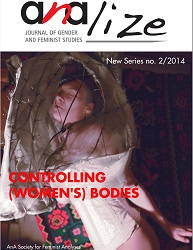Through Third World Women’s Eyes: The Shortcomings of Western Feminist Scholarship on the Third World
Through Third World Women’s Eyes: The Shortcomings of Western Feminist Scholarship on the Third World
Author(s): Abeer Al-Sarrani, Alaa AlghamdiSubject(s): Anthropology, Gender Studies, International Law, Human Rights and Humanitarian Law, Islam studies, Political economy, Geopolitics
Published by: Societatea de Analize Feministe AnA
Keywords: Mohanty; feminism; Islam; Orientalism; human rights;
Summary/Abstract: There is a growing consciousness among Muslim scholars of feminist scholars’ tendency to generalize and make unwarranted assumptions regarding the position of women in the Muslim World. Western feminists have not succeeded in their assumed mission to “rescue” Third World women. This article is written in response to Chandra Mohanty’s “Under Western Eyes: Feminist Scholarship and Colonial Discourses” (1988, 1991). The problems that Western scholars face if attempting to promote Third World women’s rights include the failure of some campaigns by Western feminists through analyzing some of the Western feminism limitation in areas such as the geopolitics, especially the history of colonialism, and cultural and religious specificities of these Third World societies. This article analyzes problems that Western scholars face when attempting to participate in calling for Third World women’s rights, following Mohanty identification of three main problematic analytic principles. There is a tendency to universalize values such as freedom and agency, coupled with a misunderstanding of the meaning of social and religious conventions such as the wearing of the veil or headscarf. Furthermore, investigation of issues facing Muslim women is complicated by the fact that Western feminists are consistently seen as a threat and an indirect way to colonize this part of the world. The article concludes that the key to building new understanding is to avoid the tendency to essentialize or totalize the experience of women of an unfamiliar culture.
Journal: AnALize: Revista de studii feministe
- Issue Year: 2014
- Issue No: 2 (16)
- Page Range: 96-111
- Page Count: 14
- Language: English

